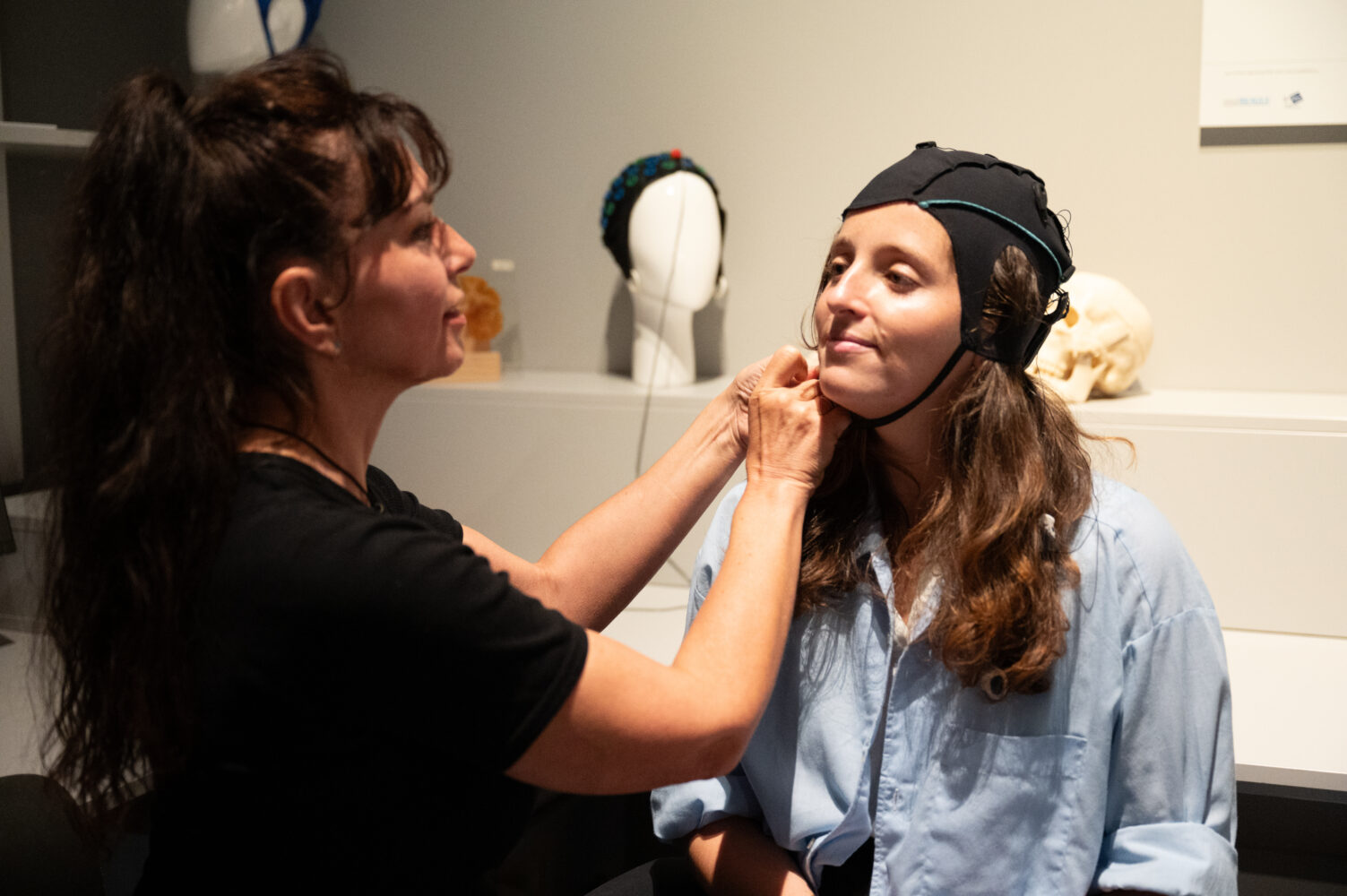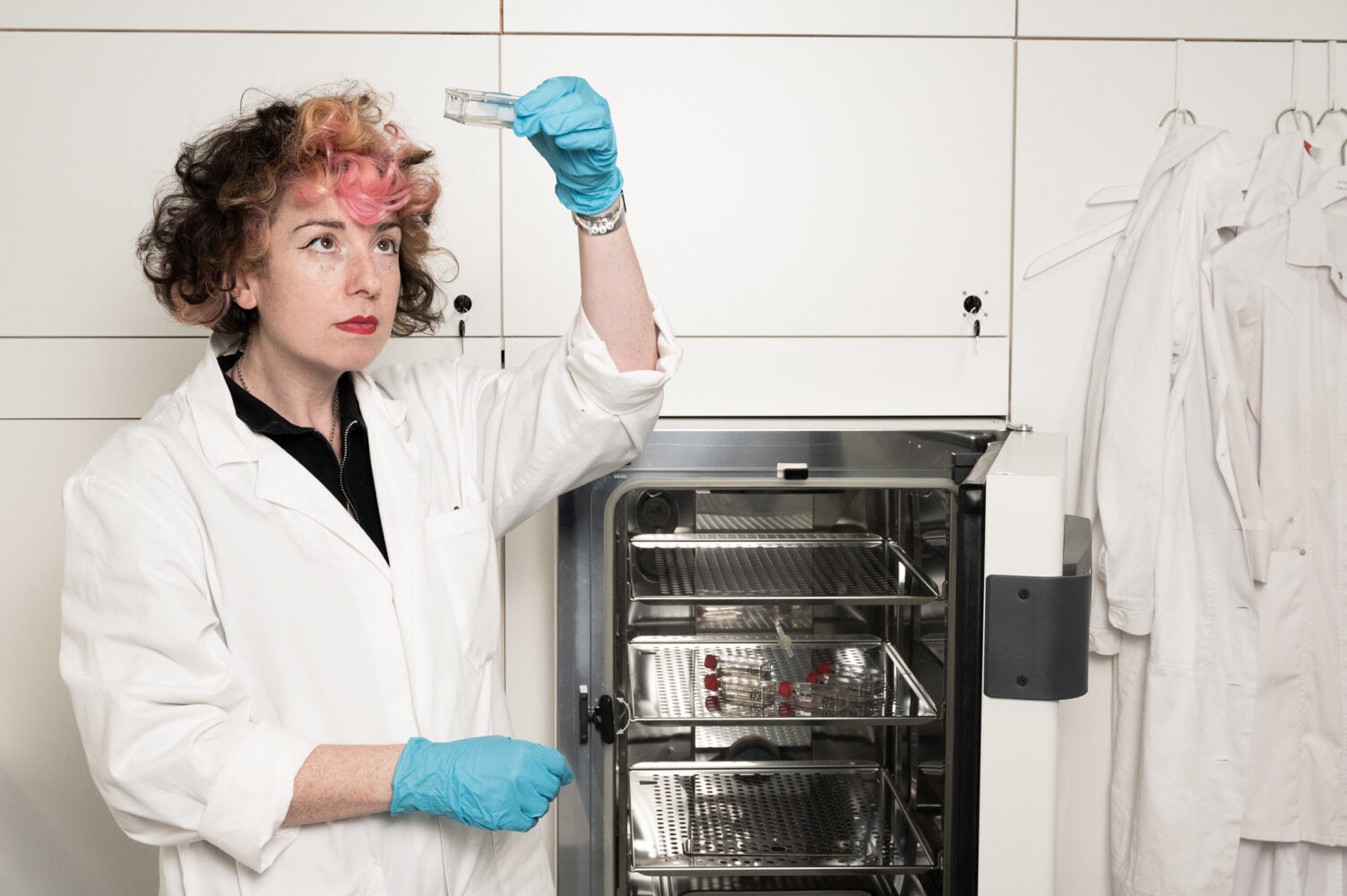The Long Night of Research will take place on May 24, 2024 from 17:00 to 23:00 at over 200 exhibition venues throughout Austria. In all nine federal states, you can discover what otherwise often remains hidden with free admission: exciting, surprising and amazing things!

Free entry!
Language: German
More Info: langenachtderforschung.at
Who writes the best prompt? How bio is a 3D printer? How big is micro? – The program at the Ars Electronica Center is available at langenachtderforschung.at/. Find a small foretaste here …
Hands-On Stations, Workshops, Lectures, Guided Tours and Presentations
This year, the Ars Electronica Center will once again be an exhibition venue, opening its doors late in the evening and giving visitors a glimpse behind the scenes. Questions and the latest research findings from a wide range of subject areas will be presented. A total of 24 stations, 12 hands-on stations, 2 workshops, 4 guided tours, 3 expert lectures and 3 experiments/demonstrations await you. In the Ars Electronica Center, the in-house research department, the Ars Electronica Futurelab, and a number of external project partners invite you to take a look behind the scenes of their research work.


17:00-18:00
Guided Tour: New insights welcome?
Tickets at the info desk
Level 0
17:30-18:00
How do we playfully build bridges to the future between young and old?
Machine Learning Studio, Level -3
8 participants aged 8 and over
17:30 – 18:15
Workshop: How bio is a 3D printer?
Ars Electronica Labs, Level -1
aged 6 and over, Tickets at the info desk (Level 0)

Can instruments fold sounds out of origami?
18:15 – 18:30
Lecture
17:00 – 23:00
Hands-on station
Ars Electronica Labs, Level -1
With the Oribotic Instruments, the Ars Electronica Futurelab is exploring how we can invent foldable musical spaces instead of linear musical scores
Can we use data artistically to make social problems visible?
17:30 – 17:55
Experiment / Demonstration
Deep Space 8K, Level 0
A sensual and emotional experience that complements art and data science.

18:00-18:25
Presentation: How beautiful can research be?
Deep Space 8K, Level 0
18:00-19:00
Führung: Neue Erkenntnisse gefällig?
Tickets at the info desk, Level 0
18:30-18:55
Presentation: What makes up the impressive sound of a
Bruckner symphony?
Deep Space 8K, Level 0

Does my brain need electricity to do puzzles?
17:00 – 23:00
Hands-On Station
Neurobionics, Level -3
The AI puzzle brain game uses the power of the brain to decode a fantastic AI-generated image! Learn how it works in the Ars Electronica Center.
18:30-19:00
How do we playfully build bridges to the future between young and old?
Machine Learning Studio, Level -3
8 participants aged 8 and over
18:30-18:45
Lecture: How well does Schrödinger’s cat calculate?
Ars Electronica Labs, Ebene -1 (aged 14 and over)
19:00-19:25
Presentation: How beautiful can research be?
Deep Space 8K, Level 0
What is a collaborative uterus?
19:00-19:45
Lecture
Ars Electronica Labs, Level -1
max 12 participants
Is it possible to grow a collaborative uterus from the donated menstrual blood of several people? If successful, the “Organ of Radical Care” by Charlotte Jarvis and Dr. Patricia Saragueta will be a scientific world premiere intended to help women around the world to be in control of their own bodies.

19:00-19:45
Guided Tour: And how much energy do you save?
Tickets at the information desk, level 0
19:30-20:00
How do we playfully build bridges to the future
between young and old?
Machine Learning Studio, Level -3
20:00-20:25
Special Presentation: How do you build a
time machine for the theater?
Deep Space 8K, Level 0

Can I see the human footprint from space?
17:00 – 23:00
Hands-On Station
Global Shift, Level -3
Earth observation using satellite data has made enormous progress and plays a crucial role in capturing the human footprint.
20:00-21:00
Guided Tour: New insights welcome?
Tickets at the info desk, level 0
20:00-20:15
Lecture: How well does Schrödinger’s cat calculate?
Ars Electronica Labs, Level -1 (aged 14 and over)
Can a steelworks heat your home?
17:00 – 23:00
Hands-On Station
There is no Planet B, Level +1
In order to reduce CO2 emissions of households, the JKU Energy Institute’s “Heat Highway” project is investigating the possibilities of interregional heat transfer networks.

20:30-20:55
Presentation: What is the impressive sound of a
sound of a Bruckner symphony?
Deep Space 8K, Ebene 0
21:00-21:25
Presentation: How beautiful can research be?
Deep Space 8K, Level 0
21:00-21:45
Guided Tour: And how much energy do you save?
Tickets at the Infodesk, Level 0

Is play the same as research?
17:00 – 23:00
Kids program
Kids’ research lab, level +1
With a variety of stations tailored to the interests and abilities of the 4-8 age group, the children’s research laboratory offers young researchers the opportunity to spark their curiosity about the world of science and technology.
21:00-21:25
Presentation: How beautiful can research be?
Deep Space 8K, Level 0
21:00-21:45
Guided Tour: And how much energy do you save?
Tickets at the info desk, Level 0
PLASTICPHONIA – Music out of Plastic Trash
21:35-21:50
Live-Performance
Deep Space 8K, Level 0
The sound artist and music producer CRYSTN HUNT AKRON (AT) composes music from plastic waste. The concert will be supported by a visualization by Berlin artist Christopher Noelle, also known as TOFA.

22:00-23:00
Guided Tour: New insights welcome?
Tickets at the info desk, Level 0
22:00-22:25
Special presentation: How can we use our heartbeat to interact in an immersive space?
Deep Space 8K, Level 0
Is water just for drinking?
17:00 – 23:00
Hands-On Station
Foyer, Level 0
A climate-neutral world is only possible with hydrogen. The hydrogen models from the Linz Technikum, BOSCH and LINZ AG illustrate the supply chain and raise awareness of renewable energies.

22:30-22:55
Presentation: What makes up the impressive sound of a Bruckner symphony?
Deep Space 8K, Level 0
